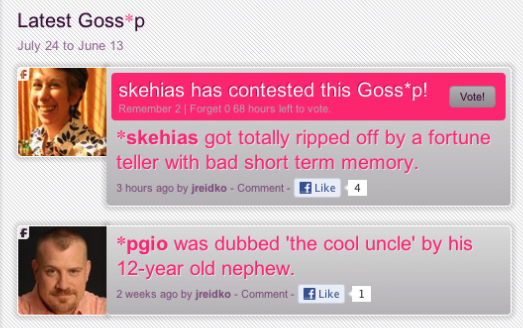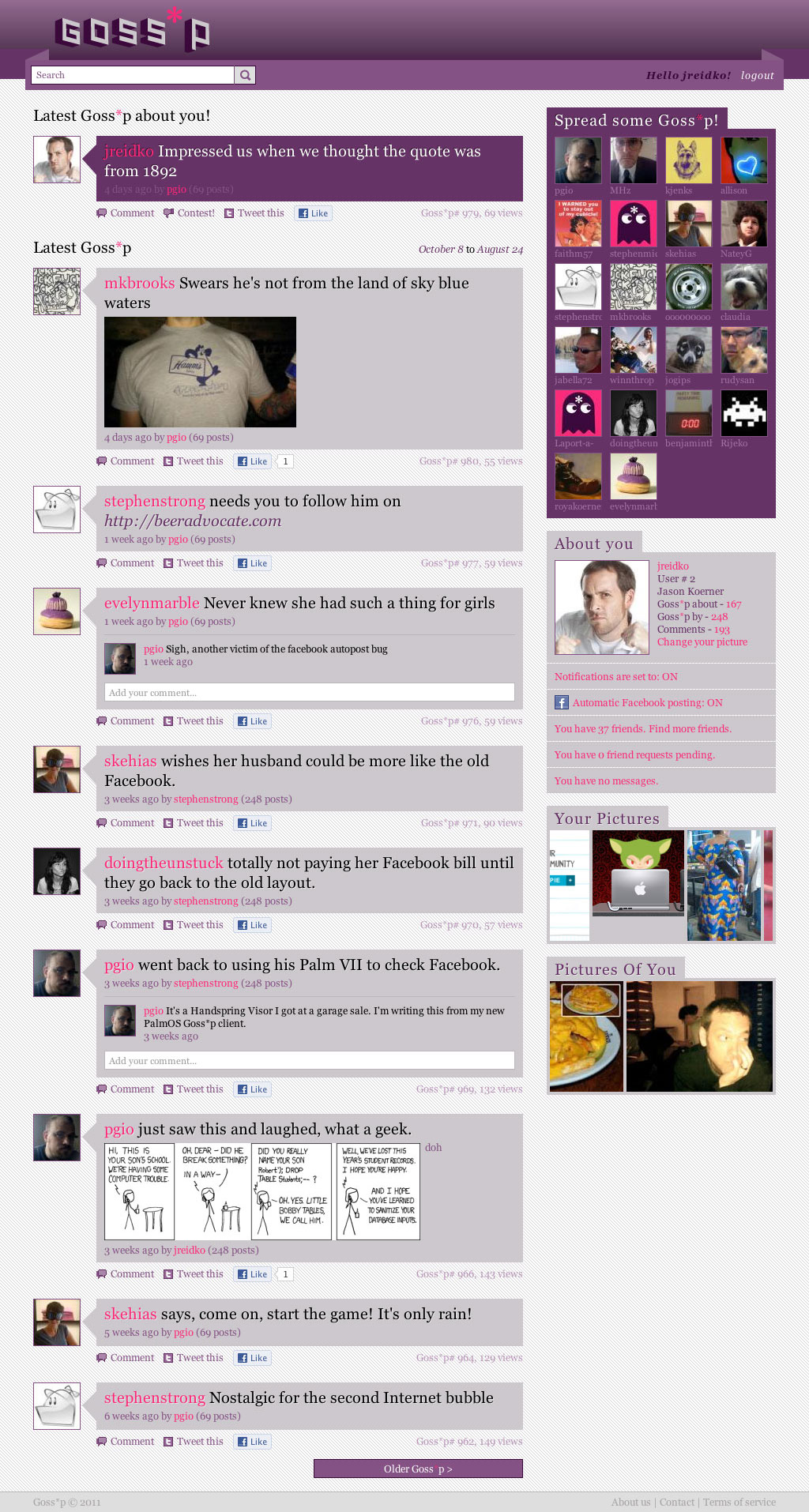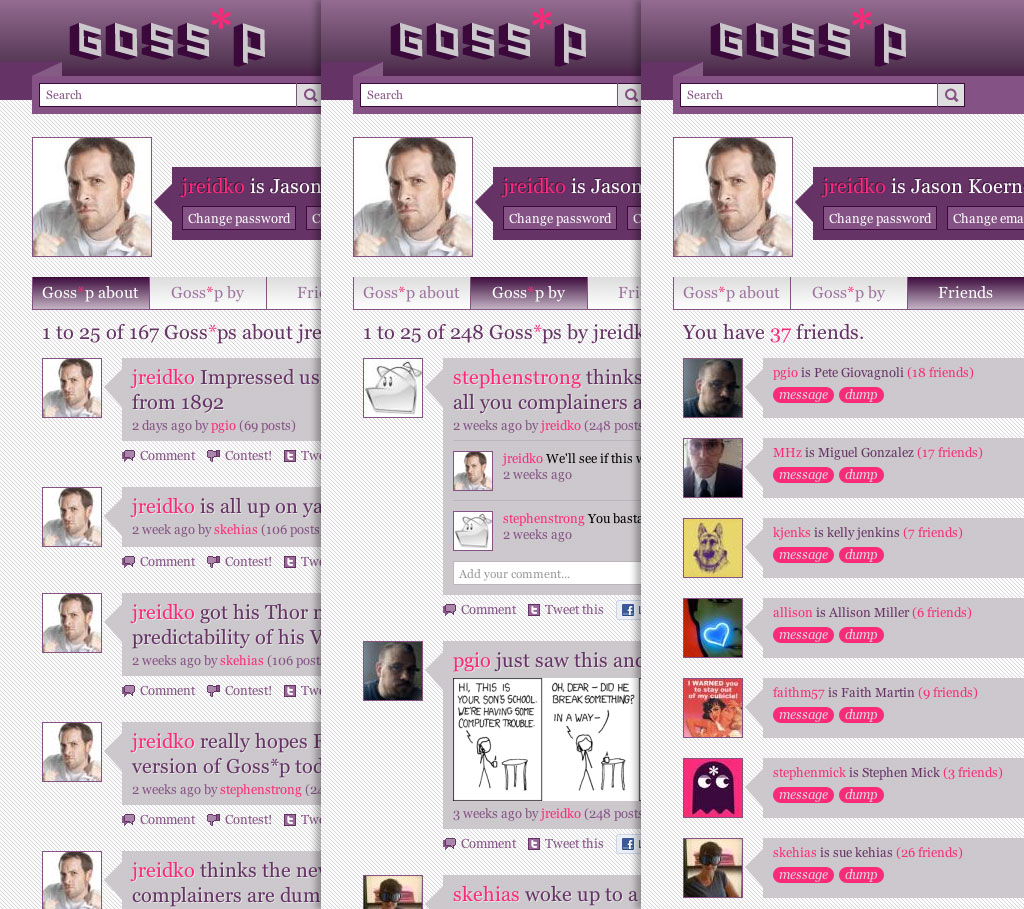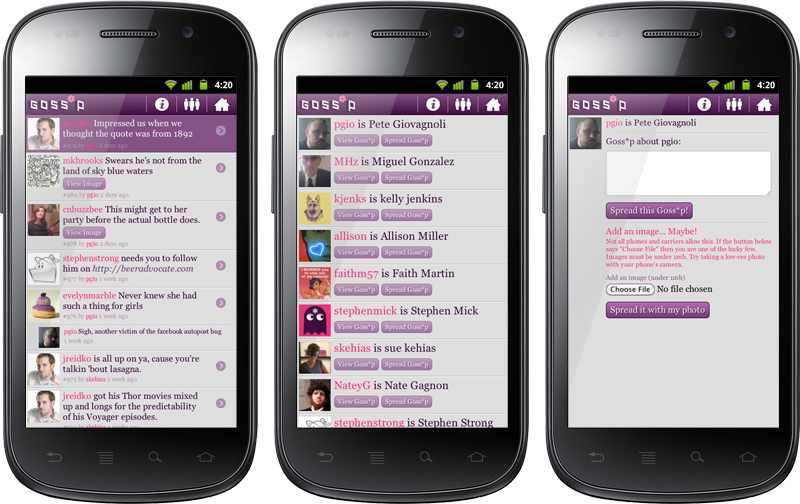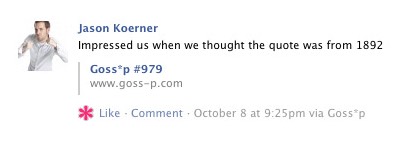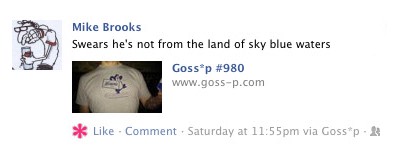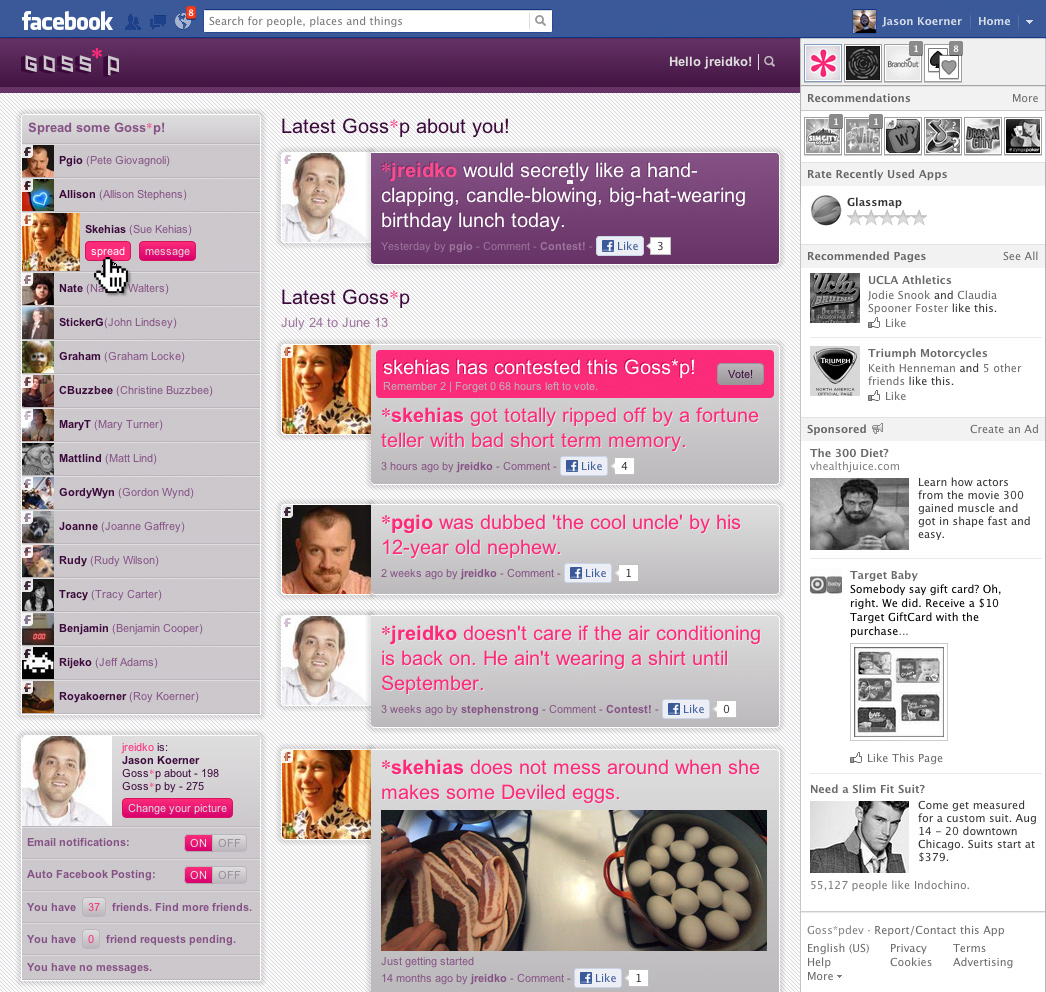Concept, Branding, UX copy, Programming: the social network your friends update for you
What if you trusted your closest friends to update your status on a social network, and they trusted you in turn? What if every post was a guest post? What would you say about your friends – and what would they say about you?
(What if you’d gotten drunk at a going-away party and hatched a scheme with friends to mess with Facebook’s notion of personal authenticity, and then spent months teaching yourself a server-side Javascript framework so you could turn that sweet joke into a dangerous reality?)

There is no ‘I’ in Goss*p
Goss*p (goss-p.com, 2011-2014) was a fully functioning desktop & mobile website and Facebook app. Architected, designed and built by myself and Jason Koerner, goss-p.com was built on server-side Javascript and connected with Facebook to push Goss*p your friends “spread” about you straight to your Facebook wall, if you chose.
As I put it back at launch day:
“Goss*p is a social network that’s not about you. You can’t talk about yourself endlessly like on Twitter or Facebook. On Goss*p your friends ‘spread Goss*p’ about you, and you spread Goss*p about your friends. If somebody spreads Goss*p about you that you don’t like, your friends all vote on it. Vote it down and it fades away. But you can’t Goss*p about yourself, because there is no ‘I’ in Goss*p.”
“There is no ‘I’ in Goss*p” was my proudest branding moment, at least for non-satirical products.
Another social network?
For a while we described Goss*p as a “friend-sourced public status engine” back when engines were cool. But it was really a social network, and you already know how that business turned out. We actually beat Facebook to a couple of features, like allowing photos in comments and a 1-minute countdown clock before posts went live so you could edit yourself. “Contesting” Goss*p and letting your friends vote ‘Remember’ or ‘Forget’ is still unique, although Hacker News has a general upvote/downvote mechanism and a nearly identical notion of fading the post display with CSS, making downvoted posts hard to read.
We generated the tiniest bit of buzz, and got nearly a gross of users – not gross users, of course, because they were mostly our friends. People said snarky things about each other. Most people had a good time, for a while. Then we decided Goss*p was more of a feature than a product, and though fun to make and massively educational, taking it to another level meant a bunch of tech transitions we just didn’t want to navigate.

The Goss*p Ghost: new user avatar. Now Goss*p’s a ghost too.
Talking about Goss*p
Trying to explain our project was a great exercise in complex branding. “Hearsay + accountability!” “Putting rumor on public record.” “Friend-sourced public status engine.” “A social network that’s not about you.” “Lets your friends tell the world what you’re up to.” We kept trying! Top-two user Stephen Strong captured it, though: “Social media ventriloquism.”
About eighteen monthis in I wrote a VO script for an explainer video that sums up where I ended with the positioning:
What does your reputation mean to you? Whether they’re slapping you on the back or whispering behind it, people will talk. That’s what gives you a reputation.
At Goss*p, we put it all on the public record. No more whispering behind your back!
Let the people you choose—your Goss*p friends—say what they want about who you are and what you’re doing.
*pgio is dying for pizza!
If you say that, it’s navel-gazing. But if they say that, that’s reporting! It’s called “spreading Goss*p” about you.
And that Goss*p is public—anyone can read it. Even Google. That’ll give you a reputation!
(If you want, Goss*p about you goes right on your Facebook wall, too.)
What do you get? You get to spread Goss*p about your friends.
*jreidko is on his fourth beer!
Don’t like what someone says? Put it up for a vote.
jreidko has contested this Goss*p!
All your friends have three days to vote – keep it or trash it!
Remember: 1 | Forget: 7
As they vote it down it literally fades away. If they all vote it down, it’s gone from Goss*p.
sfx: -pop!-
You can tag a Goss*p user with a star tag—that’s the star plus their user name.
*jreidko gave *skehias tickets!
Actually, you can tag anything you want with a star tag.
*jreidko gave *skehias *NotreDame tickets!
And that’s Goss*p.
Anyone over the age of 13 can sign up. It’s free. And it’s fun.
Goss*p. Remember—you can’t talk about yourself, because there is no ‘I’ in Goss*p!
In the end, I don’t think the positioning mattered much. The core product wasn’t really viable. Like I said, Goss*p was more of a feature, one I fully expect somebody will copy eventually.
Here’s a look at how Goss*p evolved. Soon after launch, version 1.0:
The three tabs on your user page:
The mobile web version:
Goss*p pushed to Facebook as status updates:
The Facebook app discovery page, sporting the Goss*p 2.0 style:
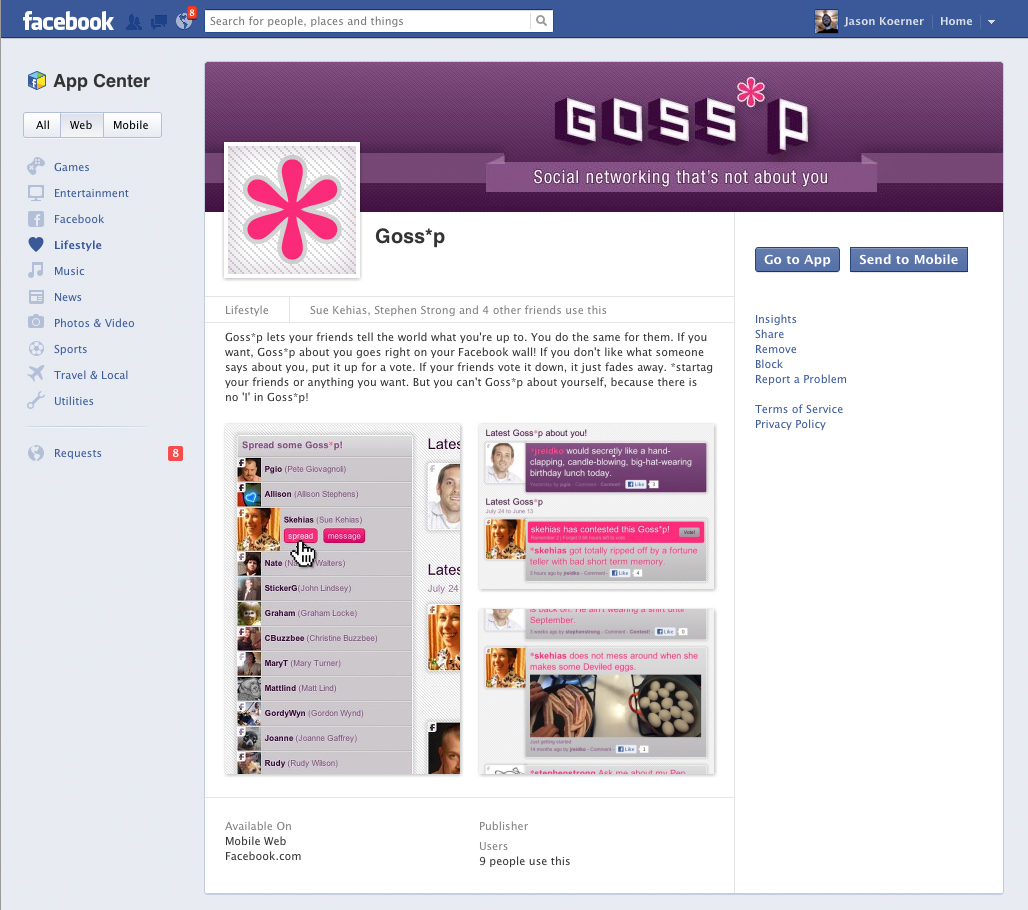
The Facebook app in action, and the debut of star tags, our attempt to out-hashtag the rest of the world:

